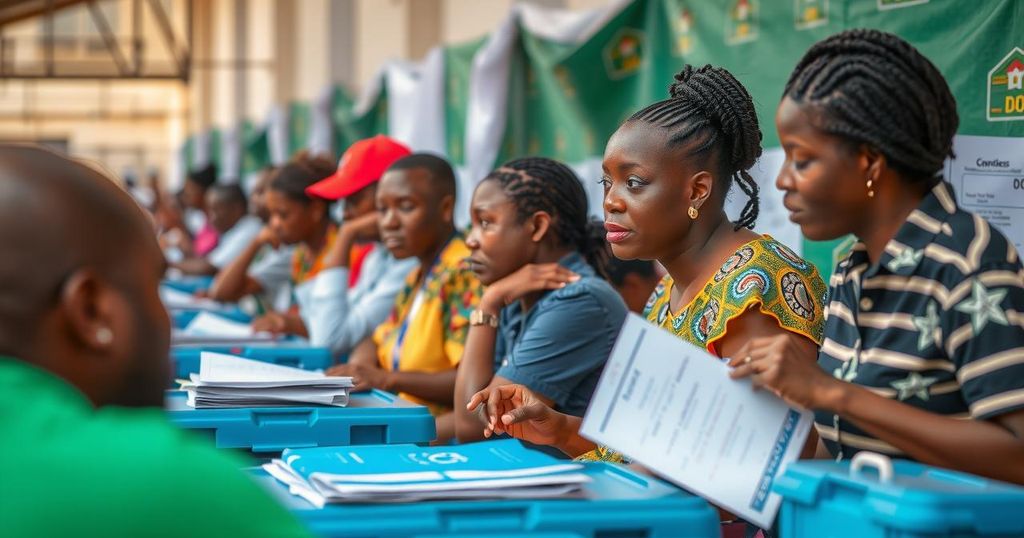Ghanaian Elections: Democracy Tested Amid Economic Turmoil

Ghana has opened polls for presidential and legislative elections amidst a profound economic crisis marked by high inflation and unemployment. Despite a historic reputation for democracy, current candidates, Bawumia and Mahama, offer little variation in their platforms. The electorate, concerned about economic struggles, faces a pivotal decision as the nation navigates its future during these critical elections.
On Saturday, presidential and legislative elections commenced in Ghana, marking a significant moment for democracy in a region increasingly threatened by extremist violence and political upheaval. With approximately 18.7 million registered voters, Ghanaians are gearing up to participate in an election overshadowed by one of the nation’s worst economic crises in decades. Despite the historic role of Ghana as a model of democratic governance in West Africa, recent years have seen a decline marked by soaring inflation and widespread unemployment, leading many to express discontent about the country’s trajectory.
The election features 12 candidates; however, the contest predominantly revolves around two principal contenders. Vice President Mahamudu Bawumia represents the ruling New Patriotic Party (NPP), while former President John Dramani Mahama heads the National Democratic Congress (NDC). While the NPP attempts to maintain its governance amid adversity, the NDC, having lost power in 2016, aims to regain the electorate’s confidence despite criticisms regarding past performance.
In the lead-up to the election, the final campaign rallies saw both candidates seeking to present their parties as viable solutions to the pressing economic challenges facing the nation. Bawumia, an economist educated at Oxford, has committed to enhancing the strategies of the outgoing administration, whereas Mahama has called for a comprehensive “reset” across governance, economy, and critical sectors vital to the populace.
Election enthusiasm was palpable in Accra, with various forms of political expression visible through rallies, posters, and music. Yet, underlying this excitement is a deep concern regarding the country’s beleaguered economy, which has seen significant difficulties recently, including a default on foreign debt and rampant inflation that reached 54% last year. Furthermore, the growth of illegal gold mining, locally referred to as galamsey, has emerged as a focal issue, symbolizing the broader economic struggle and environmental degradation as the population seeks alternative livelihoods amid economic despair.
Ghana has historically stood as a paragon of democracy within West Africa, regularly conducting peaceful elections and fostering stable governance. Nevertheless, recent developments have eroded this reputation, primarily due to a severe economic downturn that has affected the populace’s day-to-day life. Voter sentiment has shifted considerably, with a substantial majority believing that the country is on the wrong path, indicating a critical juncture for Ghanaian voters as they exercise their franchise amidst economic distress.
The elections in Ghana serve as a crucial barometer for the country’s democratic health amid pervasive economic challenges. With two primary candidates offering similar platforms and the electorate feeling increasingly disenchanted, these elections may determine not only political leadership but also the potential pathways for addressing dire economic conditions and restoring public trust in governmental institutions.
Original Source: www.voanews.com






